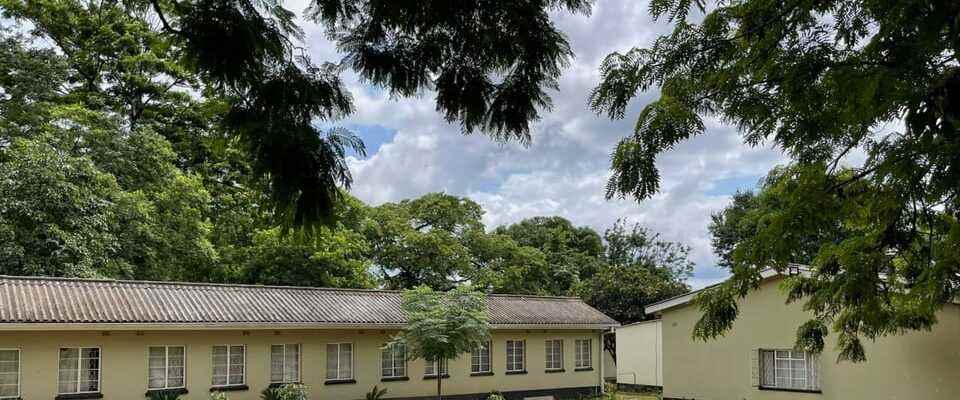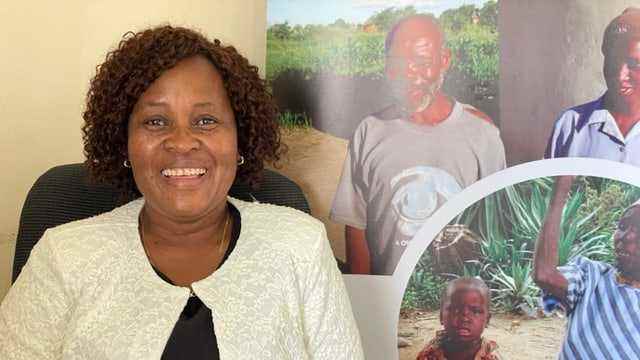contents
Especially since the outbreak of the Covid-19 pandemic, older people are increasingly perceived as a burden and rejected by their families. The lucky ones don’t have to live on the streets, but instead find a place in an old people’s home, such as the Soda state home in Harare.
The Soda retirement home is located in a township of Harare. There is an open garbage dump next to the entrance, it stinks. The home consists of several single-storey houses, surrounded by greenery.
Legend:
The state home for the elderly Soda in Harare, the capital of Zimbabwe – only 13 people live here.
SRF
A petite woman appears from behind a mango tree. She moves forward with a visible effort, step by step in sandals that are far too big. It is Angelique Cgibko, a 78-year-old woman who suffered a stroke a few years ago. The daily trip to the mango tree is her fitness routine, she says as she slowly sits down on her bed.
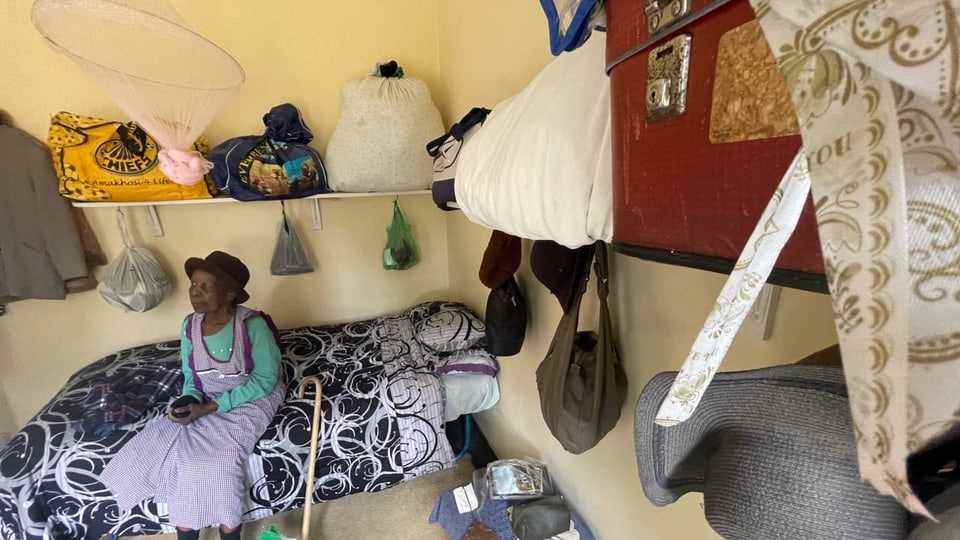
Legend:
All the belongings of 78-year-old Angelique Cgibko – she has been living in the Soda retirement home since she suffered a stroke.
SRF
Normally she would share her room with another woman, but due to Covid-19 there is now one person per room. A total of thirteen people live in this home. Angelique Cgibko says her family didn’t want her after the stroke. “It’s no wonder, I couldn’t help anymore, I wasn’t good for anything anymore,” says the woman without complaining.
While the walls of her room are covered with plastic bags containing all her belongings, a blind woman is lying in a bare room in the next room.
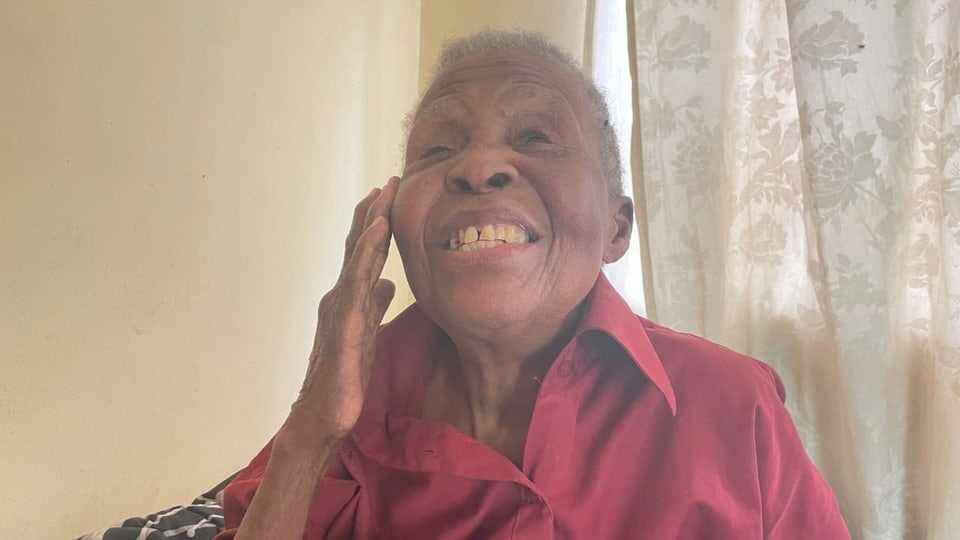
Legend:
The blind woman is grateful for every friendly voice.
SRF
She can actually only lie there, she doesn’t even have a radio. And yet she exudes an incomprehensible happiness. The third in this house has turned her room into a hut, she eats on the floor. Tree branches are stacked against the walls in case she needed firewood.
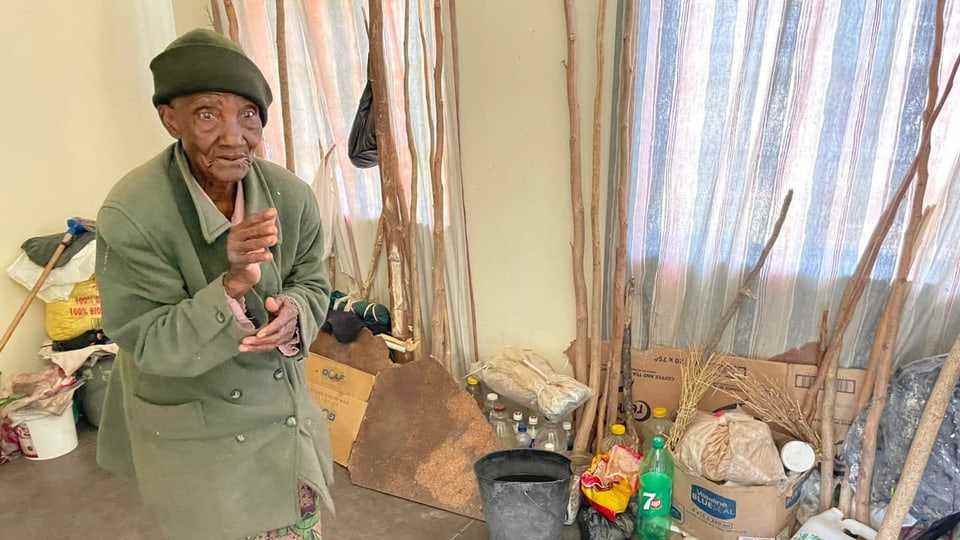
Legend:
Since the Corona pandemic, each person has lived here in their own room – this old woman has turned hers into a hut.
SRF
The manager of the retirement home – one of over 200 in Zimbabwe – tries everything to enable the residents to live an individual existence. But of course it always breaks her heart to see how little she can do, says Emilia Mukaratirwa.
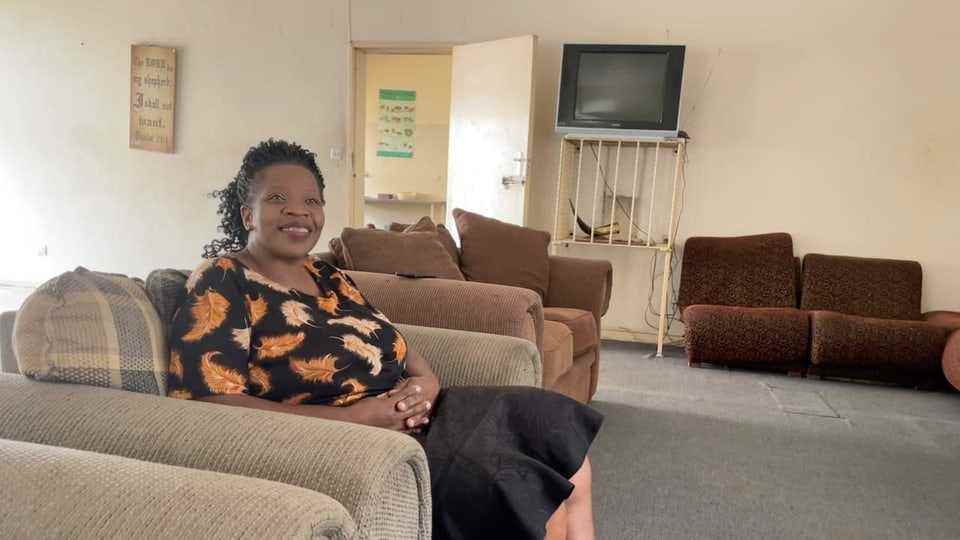
Legend:
The director of the home, Emilia Mukaratirwa, does everything for the well-being of the elderly.
SRF
“We in Africa were always so proud of our extended families, of the council of elders in the villages. That’s what differentiated us from the dehumanized West. But this system is falling apart, it cannot withstand the increasing economic pressure.”
Depends on volunteer work
The Soda retirement home is a state retirement home. But since the state is bankrupt and corrupt, it contributes nothing. Emilia Mukaratirwa is the only paid employee, everyone else is doing volunteer work.
She works closely with the NGO HelpAge Zimbabwe. On the one hand, the organization brings old people here who they see wandering around on the street, and on the other hand, they help with the search for sponsors. A local bank has renovated the sanitary facilities in the women’s and men’s wing. It is also financing the installation of a solar system so that people do not have to sit in the dark when the power goes out again – which is almost always the case in Zimbabwe.
Goats for community building
The manager also made sure that able-bodied men could work on their own corn field if they wanted to, and created a small herd of goats. The goats are a welcome change from the male inmates who sit more or less mute in their courtyard, each lost in his own thoughts.
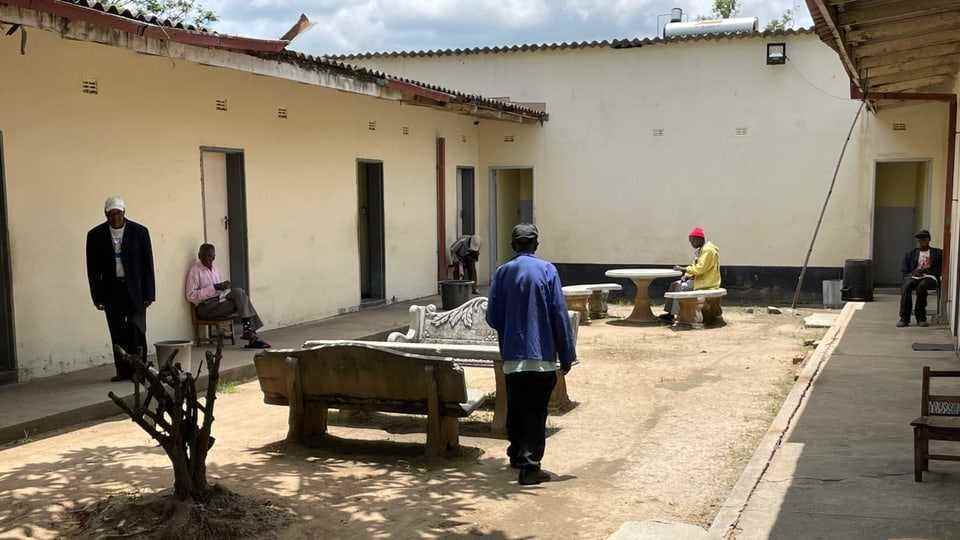
Legend:
It’s quiet in the inner courtyard of the old people’s home: men who have fallen silent let the day pass by.
SRF
“The goats bring them together and lift them out of their individual misery. Because apart from watching TV together in the evening, there is little that happens in common. People all want to eat alone in their rooms,” says Emilia Mukaratirwa.
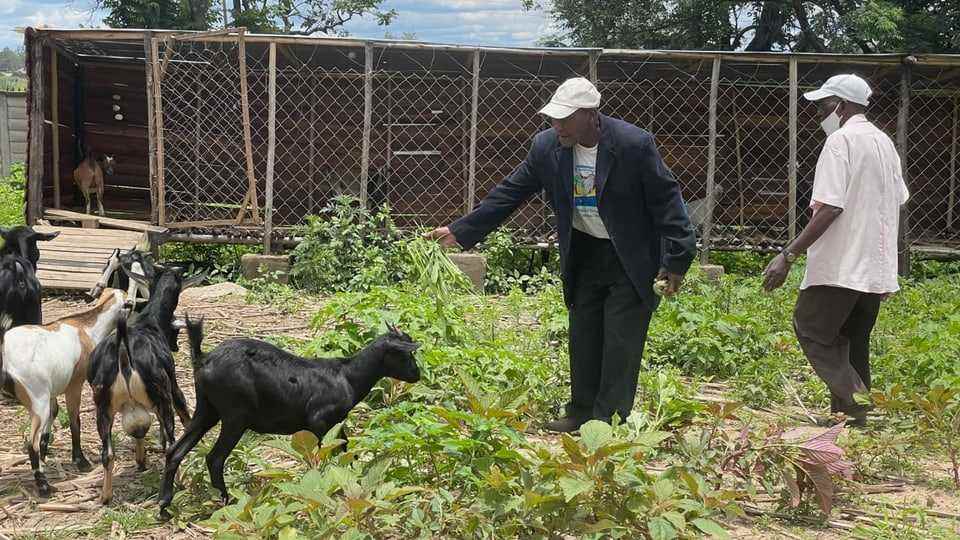
Legend:
The goats give people support in the lonely everyday life – without them he would have become depressed long ago, says a man.
SRF
Two men look after the goats with particularly great commitment. They accompany them into the nearby bushes, later drive them back and feed them. However, they say little to each other. Without the goats he would have become depressed long ago, says the man who was disgusted to leave his own house by his grandchildren. His friend nods in agreement.
Apart from watching TV in the evening, there is little that they do in common.
After the excursion with the goats, everyone waits in their rooms for lunch, the meat was donated by two rich women that day. Angelique Cgibko also eats by herself.
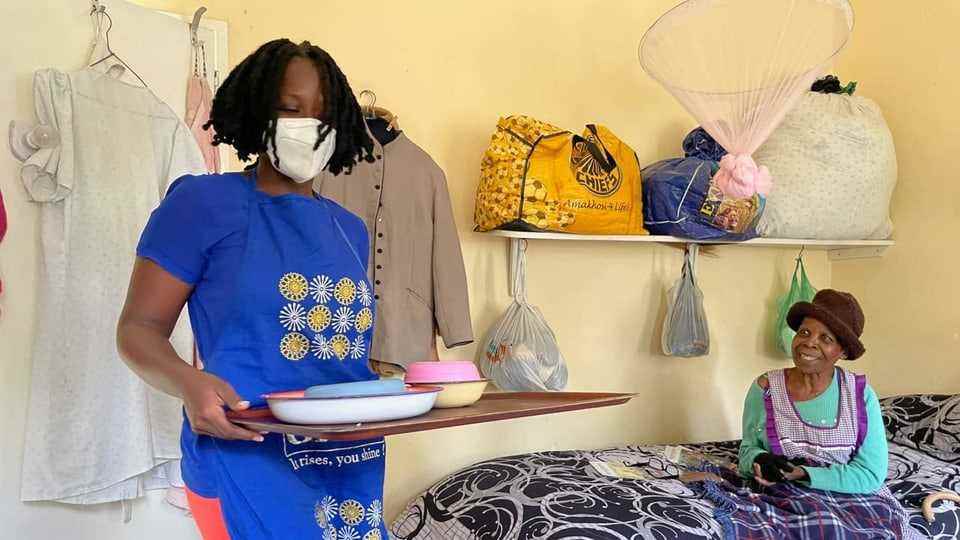
Legend:
Room service at Angelique Cgibko – everyone eats for themselves here.
SRF
When asked how she likes it here, she replies: “It’s okay, but not my home.” She slowly spoons the corn porridge into her mouth with her non-paralyzed hand. As sad as her sight is, she is lucky in misfortune. A roof over her head, enough to eat and employees who give her a smile.
